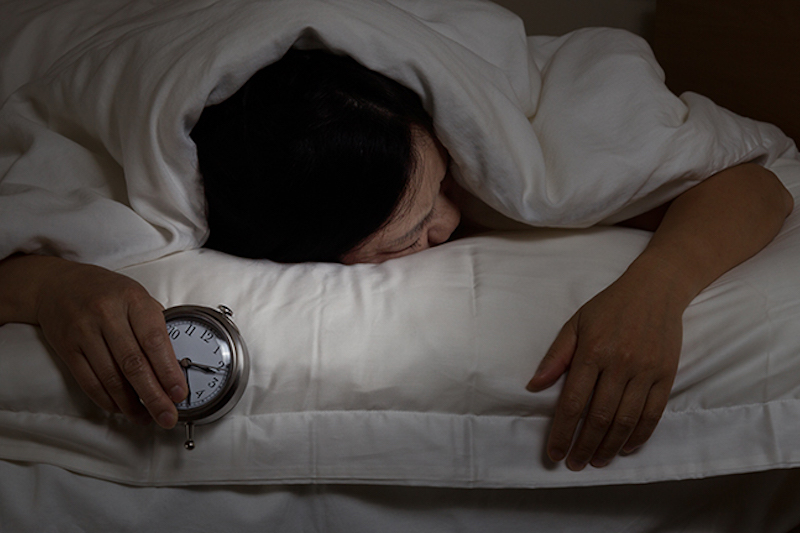If you’re reading this, there’s a good chance that pulling all-nighters is a thing of your past. No offense to all the night owls out there, but nothing beats a reasonable bedtime and a solid eight to 10 hours of sleep.
But for women in perimenopause, it’s a different story. Roughly 56 percent get less than seven hours of sleep a night. Many women have trouble falling asleep, and 30.8 percent report issues with staying asleep. More than half of women in perimenopause report feel tired four or more days per week.
The struggle is real.
Many women look online for answers, only to find myths, misinformation, and marketing ploys promoting so-called miracle products for their sleeplessness. We’re here to clear things up for you with this Q&A.
1. Is my sleeplessness caused by menopause?
It might be. Women with a history of insomnia, sleep apnea, and restless leg syndrome may have worse symptoms during perimenopause. It’s also possible to develop a sleep disorder after 40. So even if you have no history of sleeplessness (lucky!), it’s possible that new sleep issues could arise as you age.
2. Are night sweats the only menopause-related sleep disorder?
Night sweats are one cause of sleeplessness during perimenopause, but they’re not the only problem. Perimenopause brings a drop in hormone levels, including estrogen. Estrogen helps us fall asleep and promotes better-quality sleep. When estrogen levels fall, so does our ability to get good rest.
3. If I have hot flashes, will I get night sweats?
Not necessarily. All women experience the stages and symptoms of menopause differently. Some women will have only hot flashes, some only night sweats, and some unfortunate souls will have both. Hot flashes and night sweats vary in severity from woman to woman, so it’s possible to have mild night sweats that can be prevented more easily with a regular bedtime, cool bedroom temperature, and no caffeine. But other women may have night sweats so severe that they disrupt any chance of a good night’s sleep. In that case, Mia Vita Hot Flash Relief supplement may help you.
4. What can I do to sleep better during perimenopause?
There are steps you can take to get a better night’s sleep during perimenopause. The Sleep Foundation recommends very consistent bedtimes and wakeup times. You should also pay close attention to your sleep environment. Skip alcohol and tobacco, as they are known sleep disruptors. Finally, keep your bedroom as cool as you can to help keep your body temperature down.
5. What about melatonin for sleeplessness?
Melatonin helps regulate sleep, but it doesn’t initiate sleep. It can help you get to sleep earlier, but it won’t knock you out cold, and it’s not a long-term solution for a sleep disorder. What’s more, it works only for about one-third of people, so if your menopause-related sleeplessness is serious, melatonin won’t do a whole lot for you. It’s also possible that melatonin elevates blood sugar levels, so diabetics should avoid it.
Keep reading to learn how to get more sleep — and have sweeter dreams.
